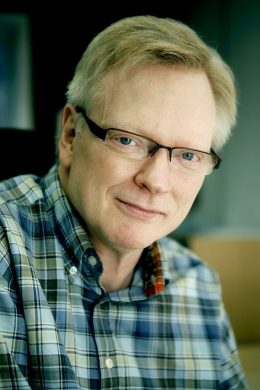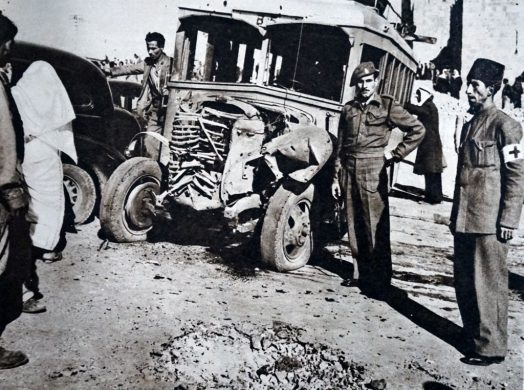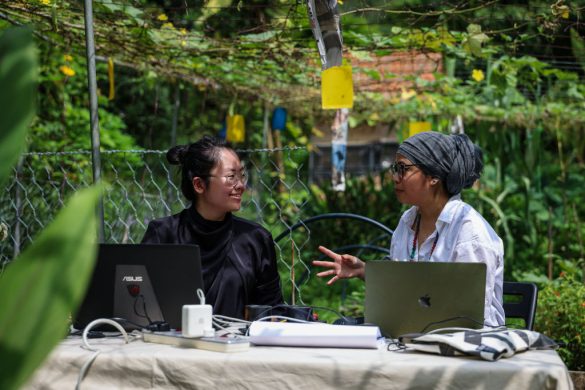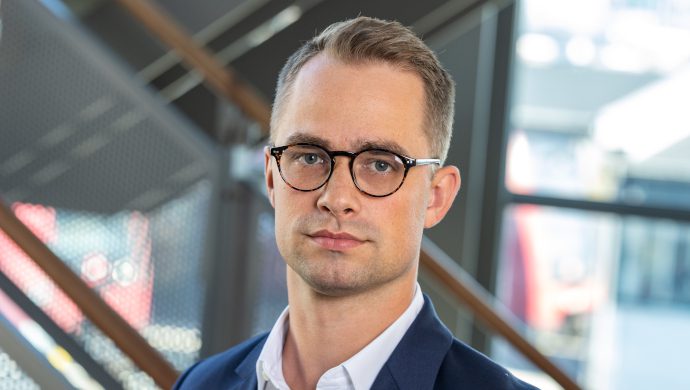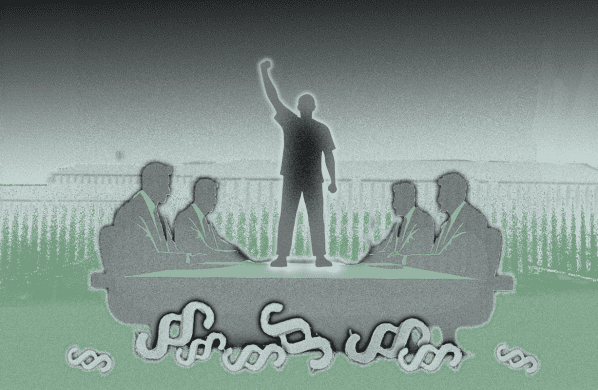Danmark sætter sit præg på den internationale kamp for menneskerettigheder for personer med handicap.
Formanden for Danske Handicaporganisationer, Stig Langvad, er netop valgt til at sidde i den FN-komite, der skal overvåge den globale gennemførelse af FN’s handicapkonvention. Det er den højeste position en dansk person med handicap har opnået.
Den 1. september i New York blev Stig Langvad valgt ind som medlem i komiteen. Dermed har den danske handicapbevægelse indtaget en rolle som garant for, at menneskerettigheder også i fuld udstrækning kommer til at gælde personer med handicap.
Der var valg til 12 pladser – og i alt stillede 23 kandidater op.
– Med handicapkonventionens vedtagelse i 2006 blev der sat en helt ny kurs i handicappolitikken. Det blev bekræftet, at personer med handicap i alle verdens lande ikke har opnået de samme rettigheder som andre, siger Stig Langvad og uddyber:
– Med Handicapkonventionen blev det tydeliggjort, hvad der skal til for at skabe den udvikling, der kan sikre lige muligheder for alle med eller uden et handicap.
89 lande inklusiv Danmark har ratificeret FN’s handicapkonvention. Her forpligter landene sig til at arbejde for lige rettigheder for personer med handicap på linje med rettigheder for andre borgere.
”Komiteen for rettigheder for personer med handicap” er nedsat for at følge dette arbejde i de enkelte lande. Komiteen består af 18 internationalt anerkendte og uafhængige handicapeksperter.
Lande, der har ratificeret FN’s handicapkonvention, forpligter sig til regelmæssigt at sende rapporter til handicapkomiteen. Her skal regeringerne redegøre for, hvor langt man er kommet med at etablere lige muligheder for personer med handicap.
Første rapport skal sendes 2 år efter at landet har tiltrådt konventionen, herefter hvert fjerde år. Danmark skal aflevere sin første rapport den 23. august 2011.
Som medlem af komiteen skal Stig Langvad skal bl.a. læse landenes rapporter og komme med forslag og generelle kommentarer til at styrke konventionens gennemførsel i de enkelte lande. Komiteen kan sætte undersøgelser i gang, hvis medlemmerne får mistanke om alvorlige brud på rettigheder for personer med handicap.
Endvidere skal han og de andre medlemmer i komiteen høre og tage hånd om klager fra borgere i de lande, der har ratificeret den såkaldte tillægsprotokol, der netop åbner mulighed for at borgene kan anvende handicapkomiteen som klageinstans – hvis alle nationale klagemuligheder er udtømte.
Danmark har ikke tiltrådt tillægsprotokollen. Det danske medlem af komiteen kan ikke kommentere rapporten fra sit eget land. Komiteen mødes 2 gange årligt i Geneve i Schweiz.
FRA Stig Langvads CV:
Birth: 20th of November 1956
Personality
I would consider myself to be a person with ability to handle difficult material fast and draw out the essential parts and communicate it in an understandable way and being able to work strategically towards obtaining the necessary goals.
I am a person who is capable of listening and understanding.
I do also have the capacity to speak and make myself understandable to large audiences.
I believe in collaboration and consensus rather than struggle and conflict.
I do not quit.
Family
Married to Karen who was born in 1961.
One son from previous relationship. He was born in 1980.
Education
Graduated in political science from the University of Aarhus in 1984.
Employment
Civil servant in the municipality of Aarhus from 1985 until 1997. Dominantly working as political adviser to the mayor on social affairs and also working within the sphere of communication, strategy and collecting and extracting data related to the social area within the municipality. In 1997 I left my job and became active in disability politics in and through disability organizations.
Disability
Spinal cord injured after a traffic accident in 1973. Permanent user of electric wheelchair.
Granted personal assistance round-the-clock.
I have been living in institutional setup from 1974 to 1978.
I have studied as a person with disabilities.
I have been working on the open labour market as a person with a disability.
I have experienced all kinds of barriers to equal opportunities as a person with disabilities in Denmark, in Europe and in many other parts of the world.
We are now living in our own house 25 km north of Copenhagen.
Disability and political experience
I have been active in disability politics within organizations of persons with disabilities since the late 1970s.
It all started at local/municipality level and has developed since.
Today (and since 2000) I am the chairperson of DPOD which is the national umbrella organization representing all persons with all kinds of disabilities who are members of the 32 National Democratic disability organizations within Denmark which are the constituency of DPOD. Today DPOD is 76 years old and still going strong.
Being a chairperson representing the 32 national single disability organizations brings you in a good and qualified position where you are able to work across the sphere of disability representing persons with all kinds of disabilities ranging from learning disabilities, autism and brain injury across persons who are deafblind, blind, deaf or hard of hearing and to persons with various kinds of physical disabilities like polio, cerebral palsy, spinal cord injury and rheumatism.
Approximately 2/3 of all persons with disabilities in Denmark are members of their single disability organization and therefore the subject and beneficiaries of the work done by DPOD.
Each and every group of persons with disabilities is equally important to the work of the collaborating disability movement.
For many years I have been appointed by the disability movement to represent the voice of Persons with disabilities within various permanent or ad hoc committees aiming at advising government on disability issues specifically and on disability perspective in mainstream activities like education, employment and social affairs.
It is important to underline that I as a person and the disability movement as such are 100% independent of government or anyone else.
As chairperson of DPOD I have been heavily involved in politics and projects in developing countries predominantly focusing on capacity building of disability organizations and the creation of so-called partner organizations. Another part of this has been to focus on developing strategies to give Persons with disabilities the voice of their own within formulation and decision in relation to politics relevant for themselves.
For the last eight years I have been actively involved in the European disability movement as a member of the board and for the last couple of years as a member of the executive committee of the European Disability Forum. The European Disability Forum is the umbrella organization representing all kinds of disabilities in a very delicate balance between national councils/umbrella organizations and European organizations representing their disability constituency.
My most important experience is that if we do not have strong collaborating organizations representing persons with disabilities themselves and/or their relatives there is no way to achieve the level of understanding needed to change society in a way to secure equal opportunities for all. If you are not living with a disability yourself you will never be able to understand the concept and the consequences to the needed level.

